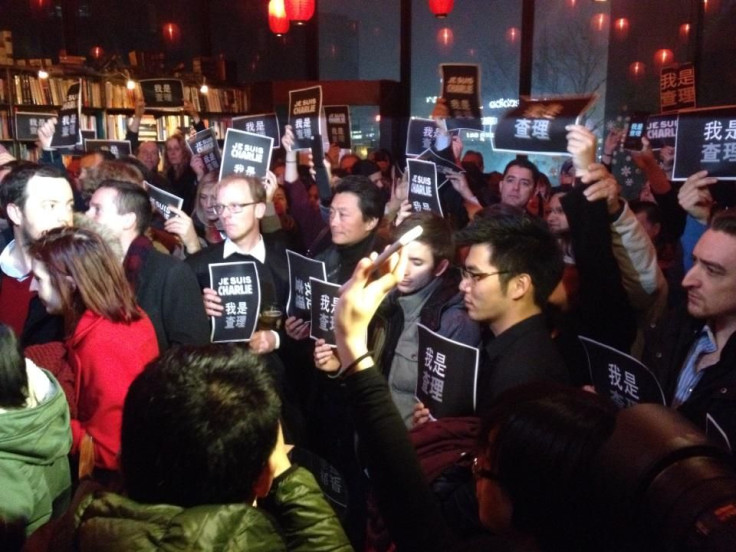Charlie Hebdo In China: Limited Press Freedom Will Prevent Similar Attacks, State Media Says

In the wake of the deadly attack at the offices of French satirical newspaper Charlie Hebdo, an editorial by China’s state-run Xinhua News Agency pointed to the terrorist attack as an example of why the press needs boundaries.
“Charlie Hebdo had on multiple occasions been the target of protests and even revenge attacks on account of its controversial cartoons,” the Xinhua News commentary said. “What they seem not to realize is that the world is diverse and there should be limits on press freedom.”
The article appeared on the same day that rallies held in Paris and across France drew in crowds of millions in support of tolerance and freedom of expression. While most saw the targeted attack on the media outlet as a sign of the importance of press freedom, a statement by China’s Foreign Ministry spokesman Hong Lei condemned the attacks but steered clear of commenting on the reasons why specifically the offices of Charlie Hebdo were targeted.
“The Chinese side mourns the victims and extends sincere sympathy to the bereaved families and the injured,” Lei said at the press briefing. “The Chinese side resolutely opposes terrorism in all manifestations and supports the efforts by the French side to safeguard security of the country.”
What the Chinese Foreign Ministry didn’t comment on, Xinhua said plainly: ”Unfettered and unprincipled satire, humiliation and free speech are not acceptable.”
Last week, an impromptu gathering of Beijing-based foreign journalists to condemn the murders of Charlie Hebdo journalists became a cause for alarm for Chinese authorities, who showed up at the venue. The event had been organized by the Foreign Correspondents Club of China’s president, Peter Ford, the correspondent for Christian Science Monitor.
“My email [event invitation] had made it clear that our concerns were limited to the tragedy in Paris,” Ford wrote, recounting the evening. “But any gathering in support of freedom of the press is suspect in the eyes of a Chinese policeman, especially when foreign journalists are involved.”
Though the handful of plainclothes and uniformed police eventually left after Ford explained the peaceful nature of the event, support for the “Je Suis Charlie” movement is clearly a sensitive subject for Chinese authorities. Though the hashtag “French magazine attack” on Weibo, China’s microblogging platform, garnered 780 million views just one day after the killings, the conversation on various online platforms seemed to mimic the opinions of the Xinhua editorial.
“You do not respect other people’s beliefs, others will not respect your life,” one commenter wrote. “If you don’t insult people’s faith, a sudden attack like this incident will not happen. Charlie Hebdo paid the price for their sloppy reporting. This was a revenge attack, not a terrorist attack,” another added. “The French should take this opportunity to reflect on their ethnic and religious policies.”
While China recognizes five state-sanctioned religions (Buddhism, Taoism, Islam, Catholicism and Protestantism), in practice, the Chinese government allows for what a 2013 U.S. government report calls “restricted religious freedom.”
© Copyright IBTimes 2025. All rights reserved.





















